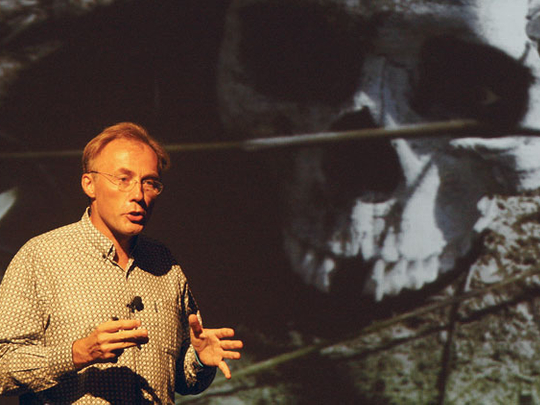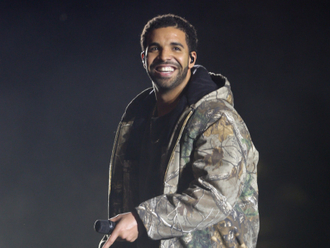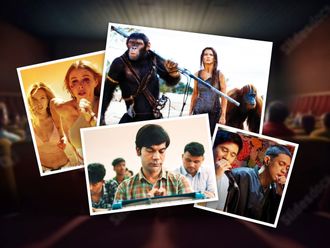
What makes a man trek through some of the most treacherous terrain on Earth, through lawless countries, armed only with mosquito repellent and a camera? Some might say it is suicide, madness or complete disregard for one's own safety. If anything, it is brave.
Tim Butcher is such a man. Travelling through the depths of the Congo — Conrad's heart of darkness — wasn't enough for Butcher and so he has just completed a 643 kilometre journey across Liberia.
"I like to travel to places — turbulent places — which are largely inaccessible and try to understand them," Butcher, a former journalist for UK broadsheet The Daily Telegraph, told Weekend Review.
Although this is a major theme for his present work, Butcher also takes another theme — to retrace the footsteps of other travellers who took the journey years before, to see what the situation is in the present day. Blood River is the phenomenal work that came out of his Congo travel. The book retraces the journey of Sir Henry Morton Stanley, himself a Daily Telegraph journalist at the time, on his 1874 trans-Africa exploration. Stanley's journey lasted 999 days, during which 242 of his accompanying travellers died.
Butcher's next stop was Liberia — which the then unknown author Graham Greene traversed with a female cousin in 1935.
Greene took quite a few more companions (30 porters and servants) and equipment with him on the journey, including a bread-making oven, hammocks and a tin bath. "I took myself, a rucksack, one other guy and nobody else," Butcher said. "We walked the whole way," referring to Greene's habit of being carried by four men in a hammock.
Butcher is working on Chasing the Devil — his upcoming book about the Liberia trek, which was not exactly plain sailing from the start. A couple of weeks before he left, there was a coup in Guinea Conakry — through which they had to trek to stick to Greene's original plan. The country hadn't had a coup for 24 years and the president was replaced and in fact died.
"The first bit of instability happened to be a couple of weeks before I went. So I thought we're going to start the adventure but we'll have to cross Guinea in a time of instability and then cross out again," Butcher said.
Unnervingly, he also had an explicit, named death threat put on him by the president of Liberia during his travel.
As a journalist, Butcher has reported from Iraq, Gaza, Lebanon, Bosnia and the Balkans but feels that reporting from these places didn't allow him to see the full picture of what was going on in the countries he was working in.
"You are a water boatman. You skip along the surface of these troubled waters but your feet don't really go down through the meniscus. You get a view of it, it's an interesting view, you do the first draft of it, the first draft of history but it's not going to be the definitive draft of history," he said.
It is like being at a boxing match, he continued, when you are sitting in the front row. "You get covered in blood and gore and the occasional broken tooth that flies out but can you see the wider fight, can you see what else is going on? No you can't, because you're so up close."
During his travel through the Congo, Butcher was shown a whole field of human bones. Dutifully he took out his notepad to take down notes, as journalists do but found that no one could remember who had been involved in the conflict. This may be pretty shocking for some, but it wasn't the most shocking Butcher has seen during his travels or work as a journalist.
"I've seen a million Kurds walking over the mountains into Iran in 1991. It's still the largest single body of humanity I've seen — a million people in the snow. Grandfathers carrying their dead children — who died on the journey — but they didn't want to bury them in Saddam's land," he recounted. In Bosnia, Butcher saw a little girl have her throat cut "for no other reason that she was Muslim". She was murdered by a Bosnian-Croat in an ethnic cleansing attack on a village in 1993. "It's a very grounding experience," he said.
At the little girl's feet lay a white rabbit, whose throat had also been cut. Butcher surmised that her pet had been killed before her "to terrorise the little girl. The murderer killed her pet before he killed her … in an act of total brutality."
However, he has seen both "bad shocking" and "good shocking" scenes.
On the night of March 19, 2003, 100 helicopters with their lights off lined up on the sands of the Kuwait desert, about to launch the heli-borne advance into Iraq.
"The rotors [were] hitting the sand of the desert of Kuwait and glinting, giving off a phosphorescent glow." There is no single ultimate shocking scene, however, "they're all part of a collective life experience that makes you what you are — another thread," he said.








